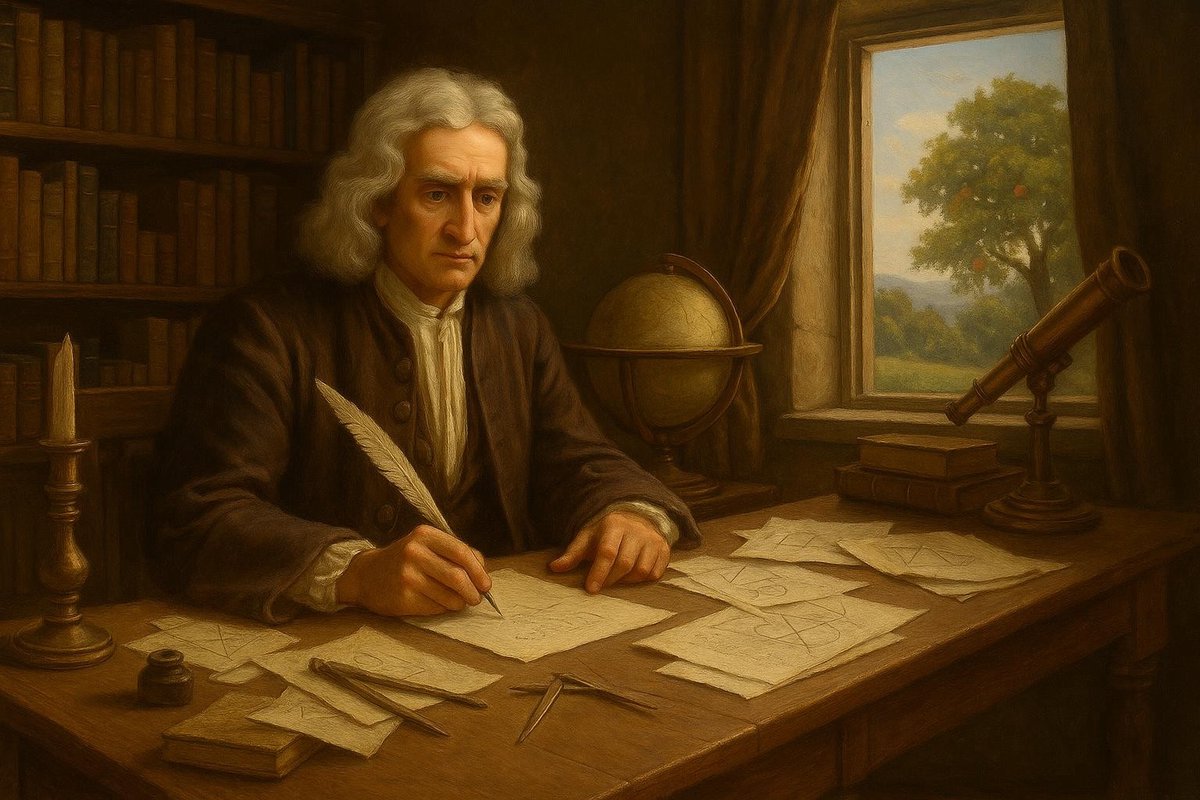
A Methodical Mind in a Revolutionary Era
Isaac Newton, the quintessential figure of the Scientific Revolution, is renowned for his unparalleled ability to blend theoretical insights with empirical rigor. Many people believe that his genius was not only in his discoveries but in his methodical approach to science. At a time when the intellectual landscape was transforming, Newton’s meticulous methods set a new standard for scientific inquiry.
Early Influences: The Building Blocks of Genius
Isaac Newton was born in 1642, a period marked by intellectual upheaval and burgeoning scientific exploration. Growing up in Lincolnshire, England, Newton was exposed to the prevailing academic influences of his time, including the works of Galileo and Kepler. He was a curious child, constantly questioning the world around him. This curiosity was further nurtured at the University of Cambridge, where he encountered the works of Descartes and Euclid.
- Exposure to early scientific works and thinkers
- Influence of Renaissance humanism and the shift towards empirical inquiry
- Education at Trinity College, Cambridge, amidst the intellectual ferment of the age
Interestingly, it was during the plague years when Cambridge was closed, that Newton returned home and embarked on his own intellectual adventures. What would you do with such unplanned time? For Newton, it was a period of profound reflection and discovery, leading to his development of calculus and theories on optics.
Mental Models: Crafting a Framework of Understanding
Newton’s mental models were a tapestry woven from observation and deduction. His Principia Mathematica, published in 1687, is a testament to his ability to synthesize disparate pieces of knowledge into a coherent whole. Of course, Newton’s laws of motion and universal gravitation are cornerstones of classical mechanics, but how did he conceive them?
- Development of calculus as a tool for analysis
- Deductive reasoning applied to empirical observations
- Integration of mathematical precision with physical phenomena
Newton employed thought experiments, famously imagining the falling apple to understand gravity’s reach beyond Earth. His methodical approach is reminiscent of an engineer building a bridge, meticulously ensuring every component fits perfectly with the next. This gave rise to a robust framework that could explain celestial and terrestrial mechanics alike.
Challenges & Resilience: Standing Firm Amidst Doubt
Like any pioneering thinker, Newton faced skepticism and challenges. His theories often sparked debates, particularly with mathematicians like Leibniz over the development of calculus. Such disputes did not deter him; rather, they reinforced his resolve to substantiate his claims with meticulous detail and irrefutable evidence.
- Conflict with contemporaries, notably Leibniz, over calculus
- Persistence in facing skepticism from the scientific community
- Role of the Royal Society in validating his work
Resilience, it seems, was built into Newton’s intellectual fabric. He once remarked, “If I have seen further, it is by standing on the shoulders of giants.” This humility, coupled with an unwavering pursuit of truth, propelled him to overcome obstacles that would have daunted lesser minds.
Legacy: An Intellectual Titan’s Enduring Impact
The legacy of Isaac Newton extends far beyond equations and theories. His work laid the groundwork for modern physics and inspired generations of scientists to adopt a methodical approach to discovery. Newton’s blend of empirical evidence with theoretical rigor continues to be the gold standard in scientific inquiry.
- Influence on future generations of scientists and thinkers
- Integration of empirical and theoretical methods in modern science
- The lasting impact of his work on technology and industry
As time goes on, Newton’s influence remains, a testament to the power of methodical thinking and perseverance. In an era where rapid change is the norm, his approach teaches us the value of patience and precision in unraveling the mysteries of the universe.
Fuel Someone Else’s Curiosity
If you found Newton’s story as inspiring as I did, why not share this article with someone curious about the past? Dive into a discussion about how methodical approaches still shape our world today. After all, curiosity is the spark that ignites discovery!

Leave a Reply